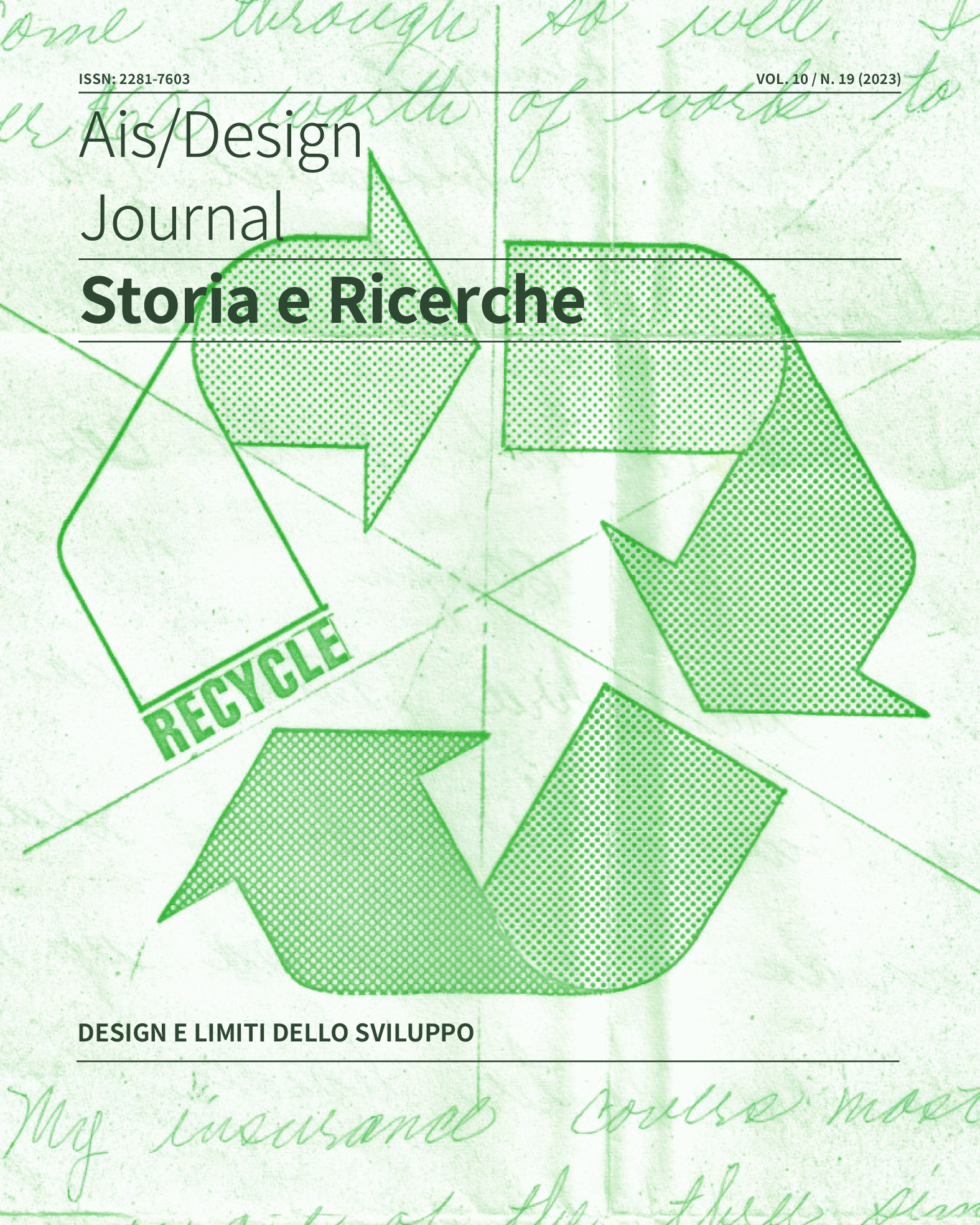Intervista di Elisabetta Trincherini a Emanuele Quinz
Abstract
Emanuele Quinz (Bolzano, 1973) is an art historian and curator, associate professor at the Université Paris 8 and research associate at EnsadLab (École nationale supérieure des Arts Décoratifs). His research explores the border zones between different artistic disciplines. He has published many important works, for the sake of brevity we will only mention here the recent Contro l’oggetto. Conversazioni sul design (Quodlibet 2020, Compasso d'oro ADI 2022). Quinz also regularly collaborates with international institutions such as the Centre Pompidou, the Centre Pompidou-Metz and the Uqàm in Montréal as well as directing various research projects. We felt it was important to interview him on the occasion of this nineteenth issue of 'AIS/Design History and Research' - dedicated to environmental sustainability in the field of design culture - in his capacity as co-curator, with Alison J. Clarke, director of the Papanek Foundation, of the recent Italian and French editions of Design for the Real World. These are among the reasons for the interview: the dissection of the book's publishing history, which is complex and in some ways troubled, the critical fortune (or misfortune) of the publication that made Papanek the "agent provocateur of the design world of the second half of the 20th century". An example of this is the Italian reception of the work, split within the Casabella itself between Mendini's favourable positions and Bonsiepe's critical ones, also on the basis of his closeness to Maldonado. The relationship with Fuller, whose preface appears and then disappears only in some languages and not in others, sees between the two an initial coincidence of intentions in the "ontological" approach to design, only to diverge, welding Papanek into an anthropological perspective in spite of the cybernetic one of the master. It is believed that it is precisely through the historicisation of the publishing events - due to the dissimilarities between the publishing countries and the important revisions that Papanek made with each edition - that it is possible to follow the evolution of the author's thought and better understand its present-day relevance, as well as its legacy for the younger generations and others.
Copyright (c) 2024 Elisabetta Trincherini

This work is licensed under a Creative Commons Attribution-NonCommercial-NoDerivatives 4.0 International License.
Creative Commons NonCommercial-NoDerivates 4.0 international License (CC BY-NC-ND 4.0).


